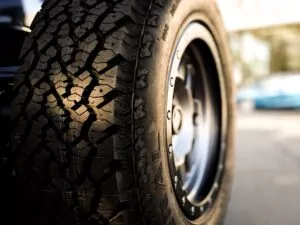
The Best All-season Tires in Canada
Owning a vehicle in Canada requires tire changes every year, and unless you are replacing tires with an identical set it originally came with, searching for new all-season tires might be overwhelming.
All-season tires are the number one choice for daily commutes during spring, summer, fall months and mild winter conditions. Most models are built to provide comfortable drive and handle various road situations. Good all-season tires can reduce road noise, as well as handle dry and wet pavement, travel long distances without showing much wear, and contribute to fuel efficiency.
However, not all-season tires demonstrate similar features. Some of them are specifically designed for trucks, pickups and SUVs, some offer more stability in curves, and others can handle snow on the ground. All-season tires also differ in such categories as size, tread pattern, load capacity, and shock absorption. That’s why we selected the best all-season tires in Canada and created this guide that compares tires from leading brands like Michelin, Nokian, Hankook and others, but also provides a deeper look at everything you need to consider before buying a new set of all-season tires.
- Best all-season tires for the money: General Tire AltiMAX RT43
- Best Yokohama all-season tires: Yokohama Avid Touring S All-Season Tire
- Best all-season tires for SUVs: Michelin Defender LTX M/S All-Season 265/70R17 115 T Tire
- Best all-season tires for fuel efficiency: Michelin Energy Saver A/S
- Best all-season tires for wet weather: Goodyear Assurance TripleTred
Our Top Picks
What to look for in all-season tires
Note: Do not rely on all-season tires only if you live in provinces where severe winter weather lasts for months and roads are affected by snowy and icy conditions. When roads are covered in ice and snowstorms are not a rare event, make sure to invest in a set of winter tires that will prevent your vehicle from slipping and skidding. In most Canadian provinces, including Quebec and British Columbia, winter tires are mandatory from December to March.
- Treadwear: Treadwear stands for the rate at which the tread of tires wears down. It is an important factor to consider because when tread starts wearing down it affects fuel economy, ride quality and overall safety. When buying a set of all-season tires look for those that will have long-lasting tread and that would wear down evenly. To extend the life of all-season tires and make sure that tread wears down evenly, make sure to check pressure at least once a month or before a long trip and rotate tires every 10,000 km. Other tips are to drive according to a designated speed limit because tires are built to travel at specific speeds and to watch out for load capacity.
- Traction: Traction in tires is responsible for the tire’s ability to maintain contact with the road. Traction is defined by tread pattern, depth, and type of used rubber. Because it differs from tire to tire, and each manufacturer creates tires to perform well in certain conditions, some tires might have good traction on dry roads and poor grip on wet roads, while another one might perform better on wet roads. Traction also depends on the tread pattern. Overall, there are three types of tread patterns: symmetrical, unidirectional, and asymmetrical. Due to groove patterns, tires with a symmetrical pattern are the longest-lasting and wear down evenly. All-season tires with unidirectional tread patterns are designed to move in a single direction. While they are standard on most vehicles, they need to be rotated more frequently to avoid wearing them down. The third type, asymmetrical is mostly used for sports cars because they are equipped with a more durable grip at higher speeds, than other patterns.
- Size: Keep in mind that tires are manufactured for every vehicle size. Thus, before purchasing all-season tires check out your owner’s manual or use an online service size-checker.
- Road noise: Not all tires reduce road sound with the same success. Some models are noticeably louder than others. A low hum is usually caused by the openness of the tire tread, the firmness of the rubber and the tire’s lack of vibration protection.
- Shock absorption: Just like noise reduction, shock absorption contributes to a more pleasant ride. However, if a pesky wind sound might be tolerated, feeling every bump can be more irritating. Besides that, driving with tires that do not provide you with a large amount of shock absorption can be damaging for a vehicle. Tires with a high performance of shock absorption are usually made of softer rubber that is combined with vibration resistance.
- Load capacity: The tire load range measures the weight it can carry. To find out how much weight tires can handle efficiently there are letters on the sidewall that range from A to F, where C rates for tires with load capacity at 50 pounds per square inch and an F-rated tire at 95. As experts say, the load capacity of the tires must be higher than what your car weighs.
Our methodology
While we all drive cars on Canadian roads where seasons affect overall condition, we understand the importance of high-quality all-season tires. That is why when we selected top all-season tires, we made sure to base our decision on expert opinions, other buying guides’ suggestions and customer reviews.
We spent more than 12 hours researching and reviewing the best all-season tires and determined a few models based on tread life, affordability, and suitability for sedans, trucks and SUVs. We also considered features that defy price points and picked tires that would suit a variety of budgets.
Best value all-season tires
General Tire AltiMAX RT43
The AltiMAX RT43 promises to provide sufficient traction in most weather conditions. It features General Tire’s Anti-Slip Sipe Design Technology that makes sure to increase traction by biting down the edges of the tire on wet pavement. More than that, it is The Twin Cushion Silica Tread Compound (used on the outside of the tires) that gives AltiMAX RT43 a long-lasting tread life. As one customer noted, he put 17,000 miles so far on this set of tires and still has a long way to go before the next set. He mentioned that he loves these tires for they are perfect for the road and your wallet. Snow and rain are where you feel the difference: his little Elantra drives great with these tires in all weather conditions on both, highway and city roads.
The only complaint we found about those General Tire all-season tires, is that they are not an ideal option for noise reduction. If you have sensitive ears and do not listen to music to block off external sounds while driving, AltiMAX RT43 might not be the right choice because the noise gets louder as tires wear down.
However, overall, those tires provide a smooth and stable ride and have the ability to absorb and smooth out bumps on the road due to the low-density internal foundation compound.
Pros
- Budget-friendly.
- Efficient shock absorbent.
- Has even and long-lasting tread wear.
Cons
- Average noise reduction.
- Not the best traction comparing to more expensive tires.
Yokohama all-season tires
Yokohama Avid Touring S All-Season Tire
Another set of all-season tires that comes at a reasonable price is Yokohama Avid Touring S. The main difference between this model and General Tire AltiMAX RT43 is that they are able to take you to high speeds with much better stability. Yokohama Avid Touring S features Tri-Plex technology on the tire’s exterior, which means you do not have to worry about punctures; you can take these tires to gravel back roads and the highway. The Yokohama tire is designed for several types of vehicles. Plus, it presents circumferential grooves that accelerate water evacuation for optimal wet traction and help to avoid hydroplaning situations.
Yet, there is one disadvantage that some customers noted: the rubber material in the tire is sensitive to heat and cold. That factor impacts tires’ performance, which makes them suited for warmer seasons only and you may have to replace them with winter tires if the temperature drops too low.
Pros
- Stability on high-speed turns.
- Quiet drive.
- Budget-friendly.
- Helps to avoid hydroplaning situations.
Cons
- Too sensitive to heat and cold temperatures.
Best all-season tires for trucks/SUV
Michelin Defender LTX M/S All-Season 265/70R17 115 T Tire
Michelin is one of the leading brand names that is dedicated to creating high-quality tires for all types of vehicles. Defender all-season tires feature MaxTouch Construction technology that provides even grip when accelerating, breaking, and going around corners. The LTX M/S tires were designed with a special silica-enhanced compound that allows them a long-lasting lifespan. As one satisfied customer noted, they purchased another set of LTX M/S without hesitation for they have owned at least five sets of these tires over the years. The tires never seem to wear out and still have great traction even at the end of their life.
Even though Michelin Defender tires come at a higher price than our first two picks, they truly worth it: they have an outstanding grip and on wet pavement this tire stops up to 33′ (10 m) shorter than competitive tires (symmetric tread design with 3D active sipes improves traction in wet and snowy conditions). Also, tread blocks use computer-optimized sequencing that reduces vibrations and noise and provides you with a more comfortable ride.
Pros
- High performance on wet pavement.
- Can handle heavy loads.
- Long-lasting tread life.
- Comfortable ride: noise reduction and shock absorbent.
Cons
- Does not perform well in icy and snowy conditions.
Best all-season tires for Alberta
Continental TrueContact Tour
The Continental TrueContact Tour is known for its solid traction and long-lasting tread wear. As one customer observed, they commute to the city for work, and these are exceptional rides. The tires are very quiet, and considering that there have been some slightly icy rides as it is an abnormal spring, these Continental TrueContact Tour handles very well. They felt very safe driving. Due to the new generation of EcoPlus technology, the tires have greater traction and shorter stopping distances on wet pavement. Even on the snow-covered roads, additional traction gives the tire improved grip on and stability.
TrueContact Tour tires also have a decent noise reduction. All you can hear while driving is a slight humming. But what most customers appreciate about these tires is that Comfort Ride technology helps to eliminate the little bumps on the road. They say that the difference in ride quality between these tires and a more expensive brand is barely noticeable.
Pros
- Long-lasting thread life.
- Provides smooth and quiet ride.
- Remarkable fuel economy.
- High performance on both dry and wet pavements.
Cons
- Not the best traction on snow.
- As per some customers stability around corners could be improved.
Best all-season tire for fuel efficiency
Michelin Energy Saver A/S
The Michelin Energy Saver A/S is made of a hard silica-based rubber compound which is not the ideal material for traction on snowy roads. Although, on warm, dry roads, this tire provides stability and high performance. As a customer noted, this is an excellent tire for three seasons of use. It performs well in wet and dry conditions. However, it is not a winter tire and should not be used in snow. Another customer noted that the tire is fairly quiet even at highway speeds.
However, the main factor Michelin Energy Saver A/S tires are known for is that they are up to 8% more fuel-efficient: thanks to Michelin’s Green X Technology, these tires are more fuel-efficient than the average all-season tire from other brands that makes them effective for fuel economy and convenient for your wallet.
Pros
- Excellent fuel economy.
Cons
- Not the best performance on snowy roads.
Nokian all-season tires
Nokian Tires WRG3 SUV
Nokian stated that an independent road testing proved that the WRG3 SUV tires have excellent cornering and braking results even on snowy roads. Hydroplane resistance and road noise are not a problem with these all-weather tires. Besides performing well on dry pavement, the WRG3 shows that there does not need to be a compromise with an all-weather tire: the asymmetrical design helps repel water, snow and slush. In that case, if you live in the place where winter is fairly mild, and icy roads are rather an exception than a rule, those tires could be your number one choice for driving through all seasons without changing them. As a customer noted, all three cars in their household are now going with Nokian all-season tires during the winter months. These tires have proven themselves to them through some very nasty storms and road conditions.
The Nokian WRG3 tires also have a built-in wear indicator that keeps you updated on the remaining tread life.
Pros
- Stable on wet ground.
- Built-in wear indicator.
- Quiet and comfortable drive.
Cons
- Not the best performance on icy roads.
Best all-season tires for wet weather
Goodyear Assurance TripleTred
As one customer noted, when it comes to getting the most value for the money, Goodyear tires are the way to go. These tires are reliable, have a great overall grip and just flow on the road. She added that for extended tread life just make sure to always have the correct tire pressure. Overall, if you are looking for confidence on both dry, and wet ground, you might want to consider purchasing Goodyear Assurance TripleTred tires. The traction provides a sense of stable safe ride around corners: the directional tread uses three zones responsible for dry roads, wet roads, and one for snow and ice. Although some customers noted that tires do not perform well on the ice, they work admirably in light snow.
Another factor to remember about those tires is they do not have the best noise reduction. Due to the tackiness of the three-zone tread, Assurance TripleTred tires are louder than typical all-season tires: you might notice a hum while driving.
Pros
- Good grip on wet roads.
- Stable ride.
- Also, great performance on dry roads.
Cons
- Noisy drive.
Pirelli P4 Four Season Plus All-Season Radial Tires
P4 Four Seasons Plus tires are designed for coupes, sedans and minivans. They are engineered to last longer and provide an efficient fuel economy. Pirelli P4 all-season tires feature a radial layering of rubber that can get you through any weather and road conditions. The tires are meant to resist abrasion without compromising traction on both dry and wet roads. Also, travelling on dusty, dirt roads during summer the well-treaded base provides excellent grip.
Another comment that a few customers left is that the tires are properly balanced, thus they do not wear down easily, so long as you rotate them at the proper times be prepared to use them for quite some time.
Pros
- Drives well on both wet and dry pavements.
- Long-lasting tread life.
- Provides stability and handling while driving.
Cons
- Not the quietest tires.
- Not the best performance on snow and ice.
Frequently asked tire questions
How do all-season tires work?
All-season tires are designed to provide a smooth and quiet ride in any weather condition above –7C. Depends on the features, traction, handling and control some all-season tires do great in the rain and bare pavement year-round, while others are better with reducing road noise and traction on snow.
How long do all-season tires work?
With proper care, frequent pressure checks and rotation after every 10,000 km all-season tires should last from 64,000 to 136,000 km.
Are all-season tires good for winter?
Despite the title, all-season tires are recommended to use only during spring, summer and fall seasons. Thus, it depends on the overall environment. In fact, if you live in a place where severe winter conditions like snowstorms and icy roads happen often during the cold season, it is best to switch from all-season to specifically designated winter tires. But, if you live in a place where snowstorms occur rarely and the temperature does not go lower than –10C on average, using an all-season tire that has good snow and ice traction capabilities, should be good enough.
All-weather vs all-season tires: What’s the difference?
The main difference between all-weather and all-season tires is based on the performance during wet weather, including snow and slush conditions. All-season tires’ grip performance drops as temperature drops, even though they can offer some traction in light snow and the occasional winter storm, they are not designed for deep snow, ice, and cold temperatures, thus all-weather tires are a better choice for winter months.
Summer tires vs all season: Is there a difference?
The difference between summer and all-season tires is in their tread depths. Summer tires have much narrower treads than all-season tires do, thus their performance on high-speed situations is not that responsive, and their tread life is not as long-lasting comparing to all-season tires.
All-terrain vs. all-season tires: Which one is the best?
All-terrain tires have a wide-open tread pattern which means that comparing to all-season tires the latter ones have better traction performance on dry and wet pavement and a larger contact patch with the road.
What are the best all-season tire brands in Canada?
To name a few well-known brands that sell all-season tires in Canada would be Michelin, Pirelli, Yokohama and Goodyear.
Goodyear Tripletred vs Michelin defender: Which one is best?
Goodyear TripleTred is known for higher all-season traction and braking, especially in wet conditions. Meanwhile, Michelin Defender provides more ride comfort and less road noise, as well as a little better tread life. Thus, because each brand has different advantages and meets different needs, the decision should be based on what you look for in a set of tires.
Where to buy all-season tires?
You can buy all-season tires at such providers as Kaltire, Fountain Tire, Canadian Tire and Costco.
Read more
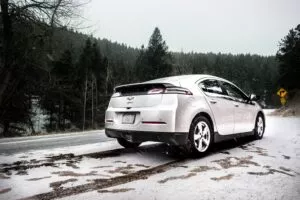
The Best Winter Tires in Canada
Winter is coming. Is your car prepared for it?

The Best Windshield Wiper Blades in Canada
Wiper blades are an underrated piece of safety equipment for your vehicle.

The Best Car Wax in Canada
Ready to wash the slush from your car? We’ve prepared a list of the top car waxes for Canadians to polish their rides to a mirror finish.

The Best Ice Scraper and Snow Brush for Cars
If you need a new snow brush, ice scraper, or are new to the great white north, we can help you.
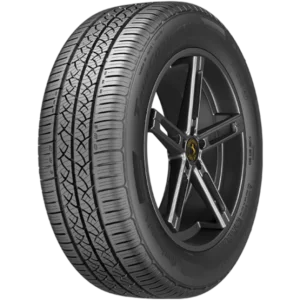
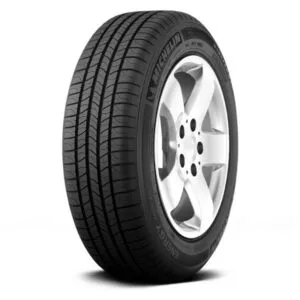
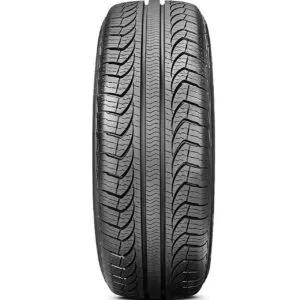
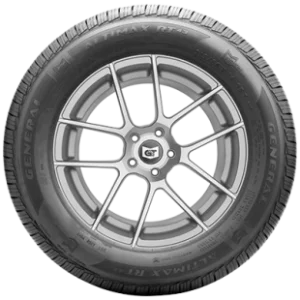
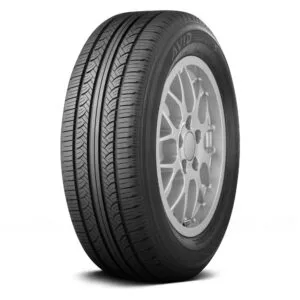
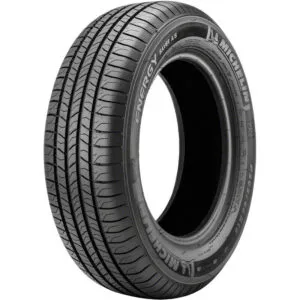
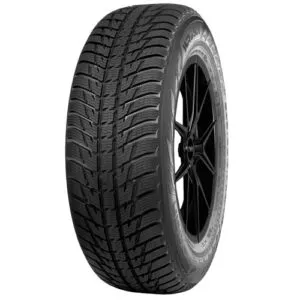
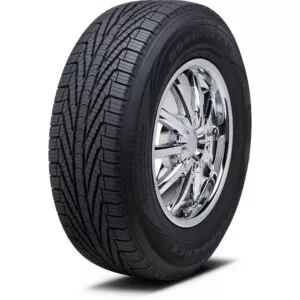
generic name for allergy pills alternative allergy treatment options how long do antihistamines take to work
ebony african pussy got thousands of naked african kitty pics — from bush to modern freaks, it’s pure slut energy. Don’t blink or you’ll miss that creamy juice burst.
Also visit my web blog https://www.youtube888.com/
Новейшие сайты для взрослых предлагают инновационный контент
для развлечений для взрослых.
Откройте для себя гарантированные порнохабы для современного опыта.
Here is my page – DOWNLOAD WINDOWS 11 CRACKED